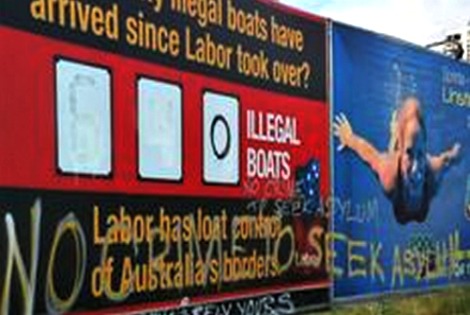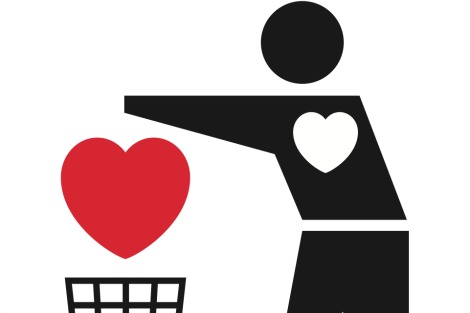Keywords: Christmas Story
There are more than 200 results, only the first 200 are displayed here.
-

RELIGION
- Andrew Hamilton
- 19 December 2013
14 Comments
Christmas tells the story of a God who entrusted Christ as a baby safely to the care of Mary and Joseph in a markedly hostile secular environment. The stories told at the Royal Commission are of parents who entrusted their children unsafely to the care of representatives of the Church. The face of Herod in our day is not that of a persecutor who threatens the church from without. It is that of a minister of the church who betrays from within.
READ MORE
-

ARTS AND CULTURE
- Barry Breen
- 18 December 2013
11 Comments
Santa walks into a bar and the barman says: Sorry, we're claused. If sarcasm is the lowest form of wit, then punning must have a reputation almost as undesirable. A joke that can be greeted only with a groan can hardly be a real joke now, can it? But punning has a rich history. It graces the pages of the greatest of writers. And when it comes to puns, subeditors responsible for article headings believe themselves to be a race apart.
READ MORE
-

AUSTRALIA
- John Falzon
- 17 December 2013
13 Comments
Recently Pope Francis blasted the so-called trickle-down economic theories in his apostolic exhortation Evangelii Gaudium. Some will scorn his message as naive at best and dangerous at worst, while others will regard it as an urgent enkindling of hope in the face of degradation and despair. The Christmas story hints that another kind of world is possible.
READ MORE
-

AUSTRALIA
- Michael Mullins
- 16 December 2013
9 Comments
Pope Francis says: 'Work means dignity, work means taking food home, work means loving!' Some commentators criticise the government for taking an active role in maintaining employment through subsidising unprofitable industries. They miss the point that it's the government's job to promote the wellbeing of the people, and having a job is so fundamental to living in modern society.
READ MORE
-

AUSTRALIA
- Tony Kevin
- 13 November 2013
6 Comments
Labor has made a political meal of last week's mishandled asylum seeker rescue. But neither Bill Shorten nor Richard Marles has shown any sympathy for the asylum seekers themselves. Meanwhile the Coalition's stubbornness has set back relations with Indonesia, has it pressed ahead with its turn-back policy to the point where Indonesia had to say very publicly 'We will not tolerate this any longer.'
READ MORE 
-

RELIGION
- Frank Brennan
- 08 November 2013
1 Comment
'Many Catholics wonder how we can maintain our Christian faith at this time in the wake of the sexual abuse crisis and the many judgmental utterances about sexuality and reproduction. The Church that has spoken longest and loudest about sex in all its modalities seems to be one of the social institutions most needing to get its own house in order.' Frank Brennan's address to the Yarra Institute for Religion and Social Policy, 8 November 2013.
READ MORE
-

INTERNATIONAL
- Kerry Murphy
- 15 October 2013
14 Comments
Italians are not necessarily more ethical than Australians, but the attitude of their government and local officials to asylum seekers who arrive by boat is in stark contrast with our own. The Pope called it vergogna — shameful, or a disgrace — that so many asylum seekers trying to get to Italy by boat have drowned. Australia's vergogna lies in its official attitudes of punishment and demonisation.
READ MORE 
-

RELIGION
- Frank Brennan
- 10 October 2013
4 Comments
'When confronted with moral evil in public policy, church personnel have a choice: to be prophetic sticking to the moral absolutes, or to be practical engaging in the compromises needed to temper the evil. At the moment, the only political parties not wanting to embrace a short term shock and awe approach are the Greens, the DLP and the Palmer United Party. And neither Christine Milne, John Madigan nor Clive Palmer will ever be prime minister.' Workshop paper from Catholic Social Services Victoria's Listening, Learning and Leading conference, October 2013.
READ MORE
-

AUSTRALIA
- Michael McVeigh
- 27 September 2013
3 Comments
The Feast of the Grand Final has a great deal in common with celebrations in other religious traditions. Events such as Christmas and Easter are celebrations of the stories that help fashion the identity of Christians. Telling these stories each year helps us create our own new stories about the values or beliefs we follow. The Grand Final has its own stories that tell us about ourselves, as well as rituals that personalise those stories for each of us.
READ MORE 
-

RELIGION
- Andrew Hamilton
- 18 July 2013
31 Comments
When policies affect people's lives, imaginative intelligence should come first into play. It is the inclination to see people, not simply as the objects of policy, but as persons each with their own face and life story. The Pope exemplified this when he visited Lampedusa, 'Italy's Christmas Island', to mourn the dead and console the living. And in so doing he stated the priority for others.
READ MORE 
-

AUSTRALIA
The sinking of the asylum seeker vessel SIEV 358 encapsulates key questions as to why these tragedies too often happen at interfaces between Australia's border protection system and maritime search and rescue system, and the under-resourced Indonesian maritime search and rescue system. Hopefully next week's public inquest by the WA Coroner comes up with some answers.
READ MORE 
-

AUSTRALIA
On Friday, Fairfax reported on another ordeal at sea, over ten days between 27 April and 7 May. Only two people died, but the toll could easily have been far worse. The story as we know it so far raises disturbing questions about Australia’s adherence to its rescue-at-sea obligations.
READ MORE 